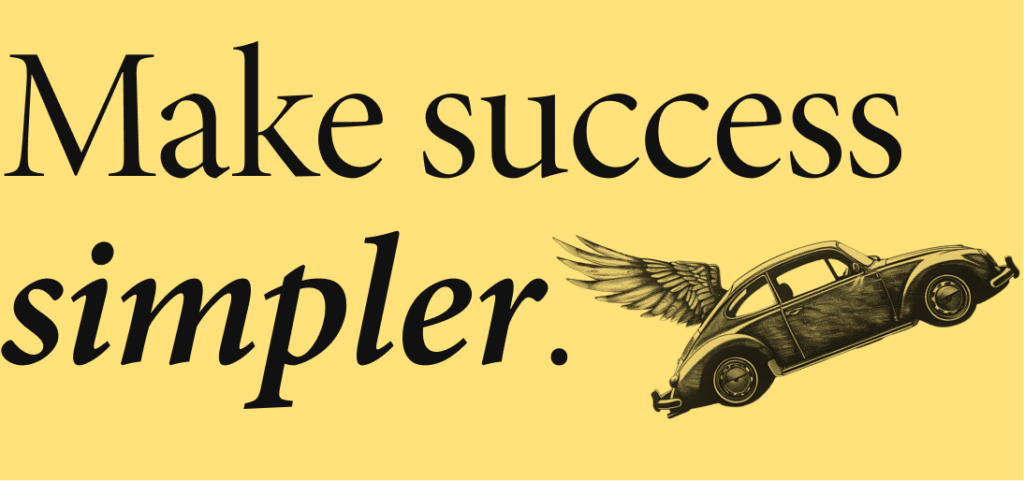Welcome to One Thing Better. Each week, the editor in chief of Entrepreneur magazine (that’s me) shares one way to be more successful and satisfied — and build a career or company you love.
Now, on with the newsletter!
Today’s one thing: Losing motivation.
That one thing, better: Finding your motivational needs.
Here’s how…

Years ago, I developed an unhealthy Twitter obsession.
I’d spend the first two hours of every workday reading tweets, then would compulsively check Twitter all day — in meetings, at home, during dinner, in bed. “Please stop,” my wife would plead.
At the time, I didn’t think about why I did this. It was clearly destructive behavior.
Then I discovered an influential psychological theory from the 1980s. In plain language, the theory says: Everyone has the same three basic psychological needs. Where you don’t have them, you’ll struggle to feel motivated and engaged.
This insight felt like an awakening. It helped me recognize an unhappiness I felt at work, and why Twitter filled that void. It also helped me avoid similar mistakes in the future.
If you’ve ever felt unhappy or dissatisfied, then you know: The problem can feel big and abstract. It’s hard to pinpoint exactly what’s wrong, which means it’s hard to think of solutions.
Today, I’ll give you a new way to understand your problem — and to hopefully find the things you need. And it starts with understanding those three basic needs.
What actually motivates you?
OK, no more setup. Here’s the list.
You, me, and every human has the same three psychological needs:
- Autonomy. You must feel in control of your own actions.
- Relatedness. You must have strong relationships or bonds with others.
- Competency. You must feel good at what you do.
I remember this by the acronym ARC — Autonomy, Relatedness, Competency.
ARC is a core insight of “self-determination theory.” It was developed in the 1980s by psychologists Edward Deci and Richard Ryan, and it revolutionized the way we understand motivation. Decades of research have confirmed its importance. When people have ARC in a situation, they enjoy “enhanced performance, persistence, and creativity.” When people lack ARC, they experience “a robust detrimental impact on wellness.”
Before we go further, a disclaimer: I am not a mental health professional — so from here on, I’m only sharing how I’ve made sense of this research personally.
Self-determination theory is about human motivation, but to me, motivation and happiness are intertwined. If I feel motivated by a personal or professional pursuit, I also feel happy and engaged. If I’m unmotivated, I’m frustrated and withdrawn.
In short, I’ve found ARC to be a very useful way to assess how I feel about my commitments — and identify what I really need from them.
Now let’s look at your ARC
If you’re feeling unhappy in a situation, it’s worth asking yourself:
“Am I finding my ARC here?”
Which is to say: Are you making your own decisions? Are you connecting with others? Do you feel good at what you do?
If you answer “no” to any of those, then here’s an earth-shaking follow-up question to ask:
“Where else are you finding ARC?”
Because I guarantee — if you don’t find it in one place, you’ll start seeking it somewhere else.
Consider it: If I’m hungry, and there’s no food in my refrigerator, I don’t stop needing food. And if I’m in an unsatisfying job, I don’t stop needing autonomy, relatedness, and competency.
Needs don’t go away. If you cannot find them in some part of your life, you will seek them elsewhere — and the end result could be a disaster. That’s exactly what happened with me.
How I lost ARC, then lost my job
Back when I had my unhealthy Twitter obsession, here’s what else was happening in my life…
I was an editor at another magazine at the time, and I was deeply unhappy. Work just felt like a big mess. I’d show up to the office miserable, and I’d come home bitter, and I didn’t know why.
Once I learned about self-determination theory, it all made sense! At that old job, I had…
No autonomy: I was routinely assigned projects that I didn’t want. Also, the company regularly reshuffled the floor plan — meaning I was always moving desks and feeling jerked around, unable to claim a space that was mine.
No relatedness: Because I was bitter, I felt disconnected from my colleagues.
No competency: My two bosses often disagreed with each other, making it difficult to know what they wanted. I struggled to get my story ideas approved. Some of my stories were killed.
So what did I do, as this job fulfilled none of my needs? I retreated to Twitter — where I found ARC!
Twitter autonomy: I could say what I wanted, when I wanted it.
Twitter relatedness: I met a lot of interesting people and felt connected to a community.
Twitter competency: I gained followers and my tweets were well-read.
In short, I found my basic psychological needs elsewhere — in a situation that wasn’t useful or healthy. I felt motivated to be on Twitter, and increasingly unmotivated at work.
Eventually, that company fired me — and I’m glad it happened. Then I got a job I liked more, where I found ARC. My Twitter obsession disappeared.
Like I said above: If you don’t find ARC in some part of your life, you will turn elsewhere to find it. So before you make a big mess, here’s the most important thing to know:
New to this newsletter? Subscribe!
You can go hunting for ARC!
Did something change at work, and now you’re less invested in the company? Are you procrastinating on a project, and aren’t sure why? Are you drifting away from a relationship? Take it from me — if you don’t act, something will break.
So before that happens, use ARC to diagnose the problem.
Let’s say you once worked from home, and now your company is forcing you back to the office. You’re upset. Ask yourself: “Am I feeling enough autonomy here? Am I connected to others? Do I feel competent?” The answers could be no — and understandably so!
Now you have a big decision to make.
Maybe your current situation is untenable, and it’s time to find ARC elsewhere. Or maybe you want to make it work, and you can start by asking: Where and how can I find my needs in healthy ways? Perhaps you can find autonomy in the office. Reach out to colleagues and build productive relationships. Seek new mastery in your work.
I’ve been doing this recently, in fact — on a very personal issue.
I have two little boys, and parenting is often frustrating for me. Sometimes it leaves me feeling drained and isolated. I wasn’t totally sure why. Then I applied ARC to it, and realized how well it explained my frustrations.
It can be hard to feel autonomy when my kids dictate my time. It can be hard to feel relatedness when I have less time for my friends. And it can be hard to feel competent when my kids are freaking out.
My natural instinct is to retreat into work — because I find so much ARC in work. But that’s not a solution. I need to be a good parent too! So now I’m trying to find more ARC in parenting — for example, by sharing my own hobbies with my kids (like watching basketball), which helps me reclaim a sense of autonomy.
Is this a cure-all for unhappiness? No, of course not. But it’s a helpful place to start. It’s a way to take a hazy mental block, and break it up in ways we can examine. It gives structure and purpose to our quest. When we wonder why we’re unmotivated, we can at least start by saying, “Maybe it’s because I’m missing this…”
Then go down the list, and reclaim what you need.
That’s how to do one thing better.
